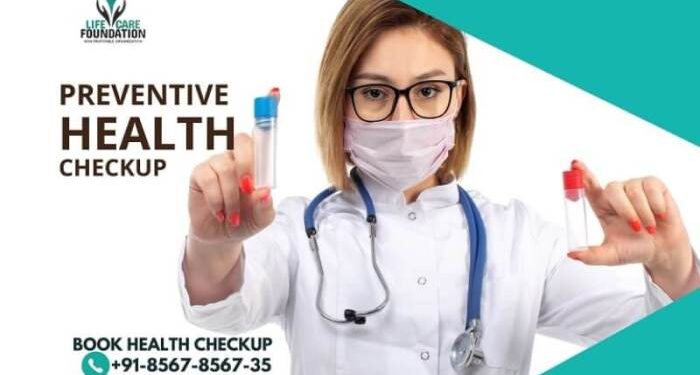Preventive health checkups: What you need to know sets the stage for this comprehensive discussion, offering readers valuable insights into the world of preventative care with a focus on well-being.
In the following paragraphs, we will delve deeper into the various aspects of preventive health checkups and why they are crucial for maintaining a healthy lifestyle.
Importance of Preventive Health Checkups

Regular preventive health checkups play a crucial role in maintaining overall well-being and ensuring early detection and prevention of potential health issues. By undergoing routine screenings and assessments, individuals can take proactive measures to safeguard their health and address any underlying concerns before they escalate into more serious conditions.
Benefits of Regular Preventive Health Screenings
- Early Detection: Preventive health checkups help in identifying health problems at an early stage, allowing for timely intervention and treatment.
- Prevention: By monitoring key health indicators through screenings, individuals can take preventive measures to reduce the risk of developing certain diseases.
- Promote Health Awareness: Regular checkups provide valuable insights into one’s health status and encourage healthy lifestyle choices to maintain overall well-being.
- Cost-Effective: Detecting and treating health issues early can help prevent costly medical interventions or complications in the future.
Types of Preventive Health Checkups
Regular preventive health checkups are essential to maintain overall well-being and detect any potential health issues early on. Here are some common types of preventive health screenings that individuals should consider:
Blood Pressure Screening
Regular blood pressure screenings are crucial for detecting hypertension, a leading risk factor for heart disease and stroke. It is recommended to get your blood pressure checked at least once every two years, or more frequently if you have risk factors or a family history of hypertension.
Cholesterol Level Test
Checking your cholesterol levels helps assess your risk of heart disease. It is generally recommended to get a cholesterol test every five years, starting from the age of 20. However, individuals with high cholesterol or other risk factors may need more frequent monitoring.
Mammograms
Mammograms are essential for early detection of breast cancer in women. The recommended frequency for mammograms varies based on age and risk factors. Women should discuss with their healthcare provider to determine the appropriate screening schedule.
Comparing Preventive Health Packages
There are various preventive health packages available that offer a combination of screenings and tests at different price points. These packages may include blood tests, imaging studies, and consultations with healthcare providers. It is important to compare the services offered in each package and choose one that aligns with your specific health needs and budget.
Preparation for Preventive Health Checkups
Regular preventive health checkups are essential for maintaining overall well-being and catching any potential health issues early on. Here are some tips on how to prepare for a preventive health checkup:
Fasting Requirements and What to Bring
Before your checkup, it’s important to check if there are any fasting requirements for specific tests, such as blood sugar or cholesterol tests. Make sure to follow the fasting instructions given by your healthcare provider to ensure accurate results. Additionally, remember to bring along any relevant medical records, a list of current medications, and your insurance information.
Discussing Family Medical History
Discussing your family medical history with your healthcare provider is crucial as it can provide valuable insights into your own health risks. Certain conditions, such as heart disease, diabetes, or cancer, may have a genetic component. By sharing this information, your healthcare provider can tailor your preventive care plan accordingly.
Role of Lifestyle Factors
Your lifestyle choices, including diet and exercise, play a significant role in preparing for preventive health checkups. Maintaining a healthy diet rich in fruits, vegetables, whole grains, and lean proteins can help improve your overall health and reduce the risk of chronic diseases.
Regular physical activity is also important for cardiovascular health, weight management, and overall well-being. Be sure to discuss your lifestyle habits with your healthcare provider during your checkup.
Understanding Preventive Health Checkup Results
Upon receiving the results of your preventive health checkup, it is important to understand what the numbers and values mean. Interpreting common test results can provide insight into your overall health and potential areas that may need attention.
Interpreting Test Results
- Blood Pressure:A normal blood pressure reading is typically around 120/80 mmHg. High blood pressure (hypertension) can indicate an increased risk of heart disease and stroke. If your results show high blood pressure, lifestyle changes and medication may be recommended.
- Cholesterol Levels:Total cholesterol levels should be below 200 mg/dL. High levels of LDL (“bad”) cholesterol and low levels of HDL (“good”) cholesterol can increase the risk of heart disease. Dietary changes, exercise, and medication may be advised.
- Blood Sugar Levels:Fasting blood sugar levels should be below 100 mg/dL. Elevated levels may indicate prediabetes or diabetes. Managing blood sugar through diet, exercise, and medication is crucial.
Addressing Potential Health Issues
- Abnormal Results:If your test results indicate potential health issues, it is essential to follow up with your healthcare provider promptly. They can provide further evaluation, additional testing, and treatment options if necessary.
- Consultation:Schedule a follow-up appointment to discuss your results in detail with your healthcare provider. They can explain the implications of the findings and create a plan for managing any health conditions identified.
Cost and Insurance Coverage
Regular preventive health checkups can be crucial in maintaining overall health and catching potential issues early on. However, the cost of these screenings can vary depending on the type of tests and procedures involved.
Typical Costs
- Basic preventive health checkups, such as blood pressure monitoring, cholesterol screening, and weight check, may cost around $100 to $200 without insurance coverage.
- More comprehensive screenings, like mammograms, colonoscopies, and full blood panels, can range from $300 to $1000 or more.
- Specialized tests, such as genetic screenings or advanced imaging scans, may incur additional costs and vary significantly.
Insurance Coverage
- Most health insurance plans cover preventive health checkups as part of their preventive care benefits.
- Under the Affordable Care Act, insurance plans are required to cover certain preventive services without any out-of-pocket costs for the insured individual.
- It’s essential to check with your insurance provider to understand what screenings are covered under your plan and any associated costs.
Resources for Uninsured Individuals
- For individuals without insurance coverage, there are various resources available to access preventive healthcare at reduced or no cost.
- Community health clinics, free health fairs, and government-funded programs like Medicaid or the Children’s Health Insurance Program (CHIP) can provide access to preventive screenings.
- Non-profit organizations and local health departments may also offer discounted or free health checkup programs for those in need.
Importance of Regular Follow-Up
Regular follow-up appointments after preventive health checkups are crucial for monitoring your health and ensuring that any issues are addressed promptly. By scheduling follow-up visits based on your checkup results, you can track changes in your health status, make necessary lifestyle adjustments, and prevent potential health complications.
Maintaining a Health Journal
Keeping a health journal can help you track changes and improvements in your health over time. Note down any symptoms, changes in weight, exercise routines, diet modifications, and other health-related information. This journal can provide valuable insights into your health progress and help you communicate effectively with your healthcare provider during follow-up appointments.
Monitoring Health Progress
Healthcare providers use follow-up appointments to monitor your health progress, review test results, and adjust treatment plans if needed. These appointments allow for ongoing assessment of your health status and the effectiveness of any interventions or medications. By attending regular follow-ups, you can work collaboratively with your healthcare team to maintain and improve your overall well-being.
End of Discussion
In conclusion, understanding the significance of preventive health checkups empowers individuals to take charge of their health and well-being. By prioritizing regular screenings and follow-ups, one can pave the way for a healthier future ahead.
Commonly Asked Questions
How often should I undergo preventive health checkups?
It is recommended to consult with your healthcare provider to determine the frequency of checkups based on your age, gender, and medical history.
What are some common lifestyle factors that can impact the results of preventive health screenings?
Diet, exercise, smoking habits, and alcohol consumption are key factors that can influence the outcomes of health screenings.
Are preventive health checkups covered by insurance plans?
Many insurance plans cover preventive screenings as part of their benefits. It is advisable to check with your insurance provider for specific details on coverage.


